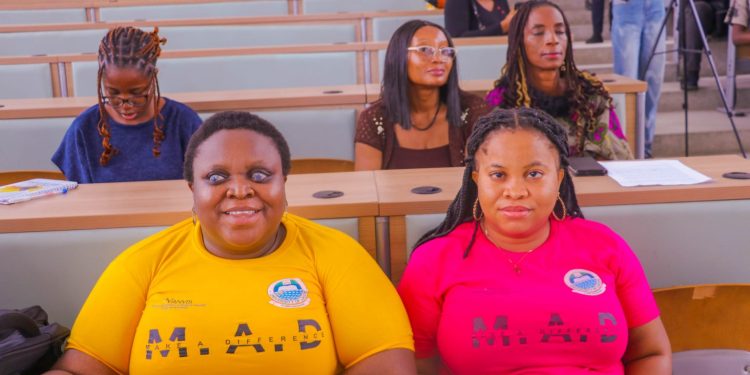The University of Lagos (UNILAG) Mass Communication Department stands out as a beacon of inclusivity, showcasing how thoughtful reforms can empower Persons with Disabilities (PWD) to thrive in academia. While Nigeria’s broader accessibility landscape remains fraught with unfulfilled promises, UNILAG is proving that action, not just legislation, drives real change.
In 2019, Nigeria took a bold step toward inclusivity when former President Muhammadu Buhari signed the Discrimination Against Persons with Disabilities (Prohibition) Act into law. The act set a five-year deadline for public spaces to become fully accessible to PWDs through ramps, elevators, tactile walkways, and more. Yet, by January 2024, the vision remains largely unrealized.
While the nation waits for systemic reform, UNILAG’s Mass Communication Department has emerged as a trailblazer, embracing accessibility in ways many institutions have yet to consider.
The department’s journey toward inclusivity began under the visionary leadership of Prof. Abigail Ogwezzy-Ndisika, who spearheaded structural and policy changes that have transformed the learning experience for PWD students. Some of the department’s key initiatives include:
- Accessible Infrastructure: Lecture halls equipped with ramps and other facilities that accommodate mobility challenges.
- Academic Support: Special consideration for research supervision, project defense scheduling, and other academic activities for PWDs.
- Inclusive Learning Environment: Tailored teaching methods and faculty training to address the unique needs of students with disabilities.
Currently, two students with disabilities are actively benefiting from these measures, which offer them a level playing field and the tools to excel.
UNILAG isn’t just reshaping accessibility within its walls; it’s addressing broader societal issues, including disability representation in media. Disability reporting in Nigeria often lacks depth, sidelining the voices and challenges of PWDs. Recognizing this gap, Prof. Ogwezzy invited Blessing Oladunjoye, a disability rights advocate and Publisher of BONews Service, to mentor students on accurate and empathetic disability reporting. This initiative highlights the department’s commitment to changing the narrative and ensuring that PWDs are not just subjects of stories but active participants in shaping them.
While Nigeria grapples with implementing its disability law, UNILAG Mass Communication demonstrates what is possible with the right leadership and dedication. The department’s reforms offer a blueprint for:
- Policy Implementation: Turning legislation into actionable steps that directly impact lives.
- Education as a Catalyst: Leveraging academia to drive social change and foster inclusivity.
- Representation Matters: Creating platforms for PWDs to share their stories and influence public perception.
UNILAG Mass Communication’s approach to inclusivity serves as a reminder that progress isn’t just about grand laws but meaningful action. By investing in its PWD students and championing inclusive media practices, the department is not only reshaping its academic culture but also setting a powerful example for institutions nationwide.
As Blessing Oladunjoye aptly put it during her session: “Inclusion is not charity; it is justice.”
This Opinion piece was written by Blessed Onwuka, a student of Mass Communication at the University of Lagos, as part of a training on Disability Reporting facilitated by Blessing Oladunjoye, Publisher of BONews Service.

